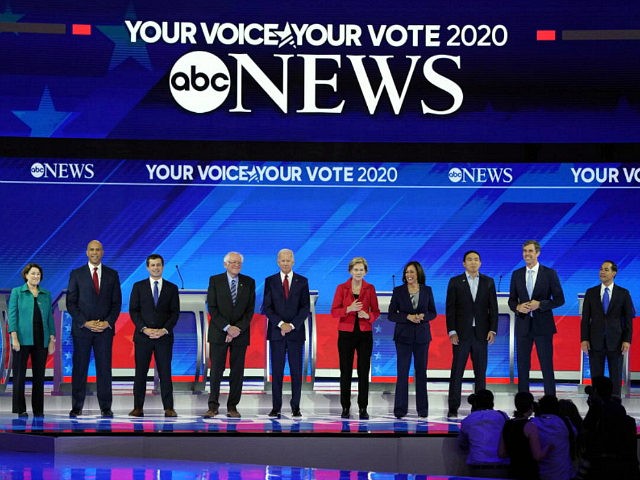A vast majority, 76 percent, of Democrats and Democrat-leaning independents may change their minds about whom they support in the 2020 Democrat Primary, an NPR/PBS NewsHour/Marist Poll released Monday indicated.
The survey, taken December 9-11, 2019, among 704 Democrats and Democrat-leaning independents, showed Biden leading the pack with 24 percent support and Sanders continuing to rise, finding 22 percent support, following his end-of-summer slump. This is reflected in the current RealClearPolitics average, which also shows the socialist senator in second place, although separated by Biden by a much wider margin: 7.9 percent.
However, 76 percent of voters indicated they may change their minds on whom they currently support, suggesting the race is far from settled.
“So this is potentially a very fluid race, and it is why, despite Biden leading consistently in national polls, there has been so much movement in early-state polls,” NPR reports.
Sen. Elizabeth Warren (D-MA) followed with 17 percent support, followed by Mayor Pete Buttigieg (D) with 13 percent support. No other candidate garnered double-digit support.
Andrew Yang (D) led the lower tier of candidates with five percent, while Michael Bloomberg (D), Sen. Amy Klobuchar (D-MN), and Sen. Cory Booker (D-NJ) all saw four percent support. The remaining candidates received one support or less. The margin of error is +/- 5.4 percent, indicating that Biden and Sanders are in a statistical tie for first.
Only seven of the candidates qualified for the December 19 PBS NewsHour and Politico Democrat debate. The list includes all the top tier candidates: Biden, Warren, Sanders, and Buttigieg, as well as Yang, Klobuchar, and Tom Steyer (D). Steyer garnered less than one percent support in the NPR/PBS NewsHour/Marist Poll.
The survey also found that two-thirds of Democrat voters and Democrat-leaning independents are “satisfied” with the choices they have in the Democrat field, but whom they support is subject to change as the race progresses.
“We’re looking for late action because it’s so fluid,” Marist Institute for Public Opinion director Lee Miringoff said, according to NPR.

COMMENTS
Please let us know if you're having issues with commenting.